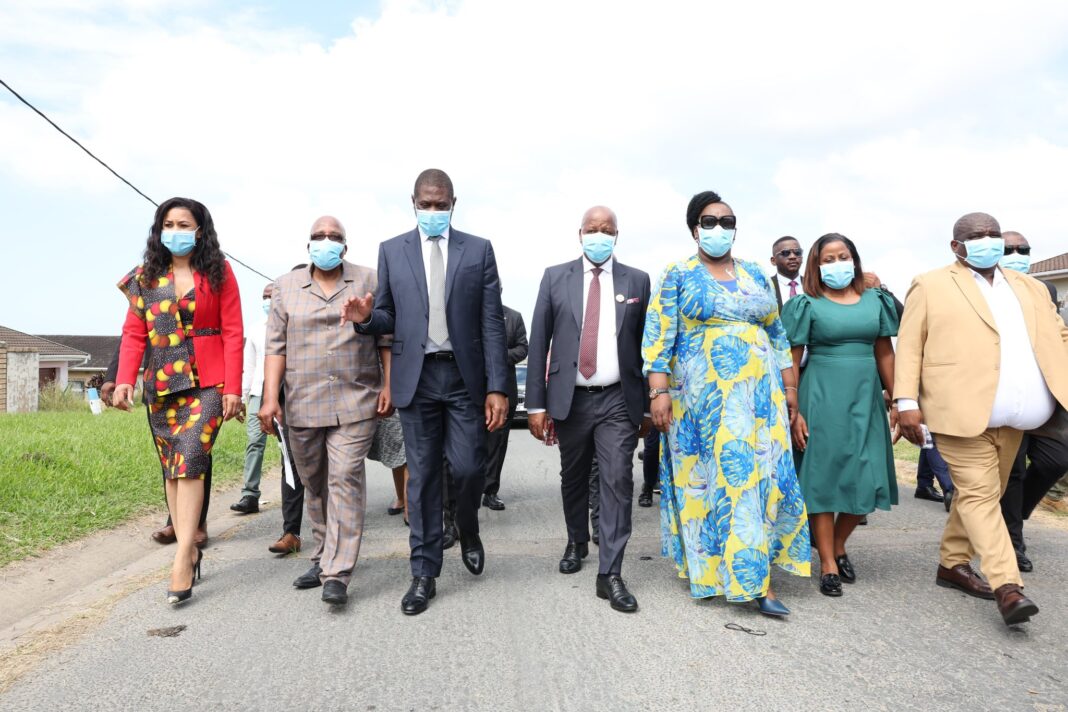By Simon Nare
Deputy President Paul Mashatile has revealed that South Africa is on the brink of making a breakthrough in manufacturing a TB vaccine, the “M 72 TB”.
Addressing the World TB Day commemoration at Gamalakhe township outside Port Shepstone in KwaZulu-Natal on Monday, Mashatile said trials conducted had so far yielded promising results and the country was on the threshold of a breakthrough.
“We are indeed readying ourselves for local manufacturing and a rapid national roll-out once all procedural protocols have been met,” said the deputy president.
He said South Africa was a global leader in the introduction of novel TB drugs and treatment regimes as well as innovative diagnostic tools and approaches.
He announced the launch of End TB campaign aimed at testing five million people by the end of March next year, and annually thereafter.
Mashatile said this would in turn result in a 29% reduction in TB incidence and a 41% reduction in TB mortality by 2035.
He added that in partnership with the South African National Aids Council, the government would embark on a mass mobilisation drive to rally South Africans behind the campaign.
“We will work with community leaders, traditional healers and media platforms to spread the message that TB is preventable, treatable and curable. Of course, we cannot look at TB in isolation from HIV.
“In the face of high co-infection rates, we must respond to the two epidemics concurrently. That approach is one of the main reasons behind the push for the integration of services at health facilities,” he said.
Mashatile said the country had an estimated 7.8 million people living with HIV, and while 7.5 million of them knew their status, only 5.9 million were on antiretroviral treatment.
He said South Africa was among the first countries to roll out bedaquiline as part of the national Drug-Resistant TB Treatment Programme, replacing the older injectable drugs.
The country also led in the implementation of shorter, all-oral medicines, significantly improving treatment outcomes and reducing side effects for patients. This demonstrated a clear strong commitment as the government in the fight against TB, he said.
Mashatile said despite these strides, TB continued to claim too many lives. Last year, around 270,000 people were diagnosed with TB and 56,000 of them died. This translated to 153 people every day.
“TB knows no boundaries—it affects people across all communities, but the burden falls most heavily on the poor and vulnerable. Furthermore, in 2023, an estimated 58,000 people with TB were not diagnosed.
“These are our mothers, fathers, brothers and sisters—people who deserve care and dignity. We must reach them. TB is not just a medical issue; it is a human rights issue. Every person, regardless of their background, deserves access to life-saving treatment,” he said.
The deputy president said South Africa was among 30 countries that accounted for 87% of the global TB burden and was also among the 10 countries battling the triple burden of TB, HIV and TB co-infection, as well as drug-resistant TB.
“Yet, TB is a disease that is preventable and perfectly curable, even if one is living with HIV. We must, therefore, work much harder to change this situation. Hence, before we started the programme we visited families that require support,” he said.
INSIDE POLITICS

